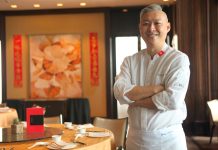The film Heneral Luna is now a cultural phenomenon, embraced by all levels of the public, and widely acclaimed. It is seen as a game-changer in the local film industry, which used to release 150 pictures a year in the 1980s, but now barely manages 20 a year. Whatever its flaws, Luna is undoubtedly rich in philosophical meaning, political analogy, and cultural significance. How it came to be made is a story in itself.
It all started 18 years ago. Film and theater actor and producer Eduardo “Ed” A. Rocha and Hilarion “Henry” Francia, a key figure in the Philippines’ early independent film scene, wrote the first screenplay for Heneral Luna in 1997, at the behest of Cirio Santiago. The format was originally intended to be a television series for the country’s centennial that year. They later rewrote it as a feature film. However, the producers they pitched it to, at that time, felt the script was too controversial. For most Filipinos, the centennial was meant to be a feel-good celebration, and the film might not only reopen old wounds, but cut some new ones, as well. The project was shelved. Francia passed away in April 2004.
Around 2013, young director Jerrold Tarog (his name is pronounced JerALD), who had never met Rocha or Francia, on his own, decided to explore making a film about Luna, after reading the biography by historian Vivencio José. Through connections, he learned of Rocha and Francia’s existing script. He sought out Rocha and asked permission to develop the script further, and in particular, to translate the dialogue into Tagalog, to which Rocha readily agreed. The first translation was done by writer, indie filmmaker, and Filipino literature professor Dr. Alvin B. Yapan. Tarog did a second translation, which, he said, made the language less formal.
Tarog had pitched the Luna film idea to a number of producers, including Imee Marcos and Regal Films, all of whom declined. Some told him that a historical epic would be both expensive to produce and hard to market. They also essentially implied that the film would be boring. Tarog then found his best ally in the original writer, Rocha.
Rocha arranged to pitch the film to Fernando “Nando” Ortigas. A member of the landed clan of Greenhills and Ortigas Center, Ortigas had actually lived, since the 1970s, in Canada, and had almost no connection with the vast family property business. He had been compelled to return in to Manila in 1998 and participate in the business, which was in danger of getting derailed by intra-family disputes. However, one of Ortigas’ first loves was film, as Rocha discovered. He had actually been dreaming of producing a film.
Ortigas agreed to bankroll the film, which had an initial budget of about P30 million. He well knew that this could balloon to over twice the amount—which it did, to P80 million. Nevertheless, he stuck to it, believing in the value of the project, if not its marketability. He was prepared to see every last centavo go down the drain—but insisted that the film should be made well, whether or not it turned out to be a financial success.

Nando: I really wanted to make a movie, that has been one of my desires. I come from a family of businessmen, I know there are supposed to be studies, but we didn’t do that. When I got the script, it took me two hours to read the first 10 pages, because the dialogue was in Tagalog. My Tagalog is, like my Spanish, really bad. So I called up Ed, and he sent me the English version. I liked it, I liked the comedic parts in it. The next question, who is the director? He introduced me right away to Jerrold. He showed me, “Here are five movies that Jerrold has made.” I really don’t know anything about Filipino movies. I have friends who are Filipino movie actors, but I don’t really go to see their movies. I don’t think that’s a negative, necessarily. I told Jerrold, “I want a movie that I can enjoy for the rest of my life.” I wish I was in the movies 40 years ago, when I was a young chicken, but that’s not the case. So this could be my first and last movie. I wanted something meaningful.
Ed: Eighteen years ago, when I wrote that script, I wanted to hold a mirror up to the nation. So we signed a declaration of independence. A hundred years later, are we independent? Did we earn it?At that time, Cirio Santiago asked me, why do you want to write about Antonio Luna? I said, it’s a great story, his life was like a Shakespeare tragedy. He was the one who contributed most to his own downfall. My parents always told me that our grandparents knew him. They said the biggest tragedy in our quest for freedom was the killing of Antonio Luna. If you look at the subtitles, that’s my original script, I wrote it in English.
Jerrold: Actually, there’s a sector of the academe who hate the film. Because we tried to reach a wider audience. So there is still a higher art. They didn’t like the sort of Marvel hero slant, and the humor. These are not historians, they are mostly film critics. They thought the film should have been more serious, and tackled more the issue of American colonialism. So they’re criticizing it for what they think the movie should have been, not what it is.
—
Read more about how the three men came up with Heneral Luna and what they’re planning to do next inside Asian Dragon Magazine’s November-December 2015 issue. Grab your copy from all leading bookstores nationwide or purchase the issue from the Asian Dragon Magazine App, free to download on Google Play Store, iTunes, and Amazon.






































